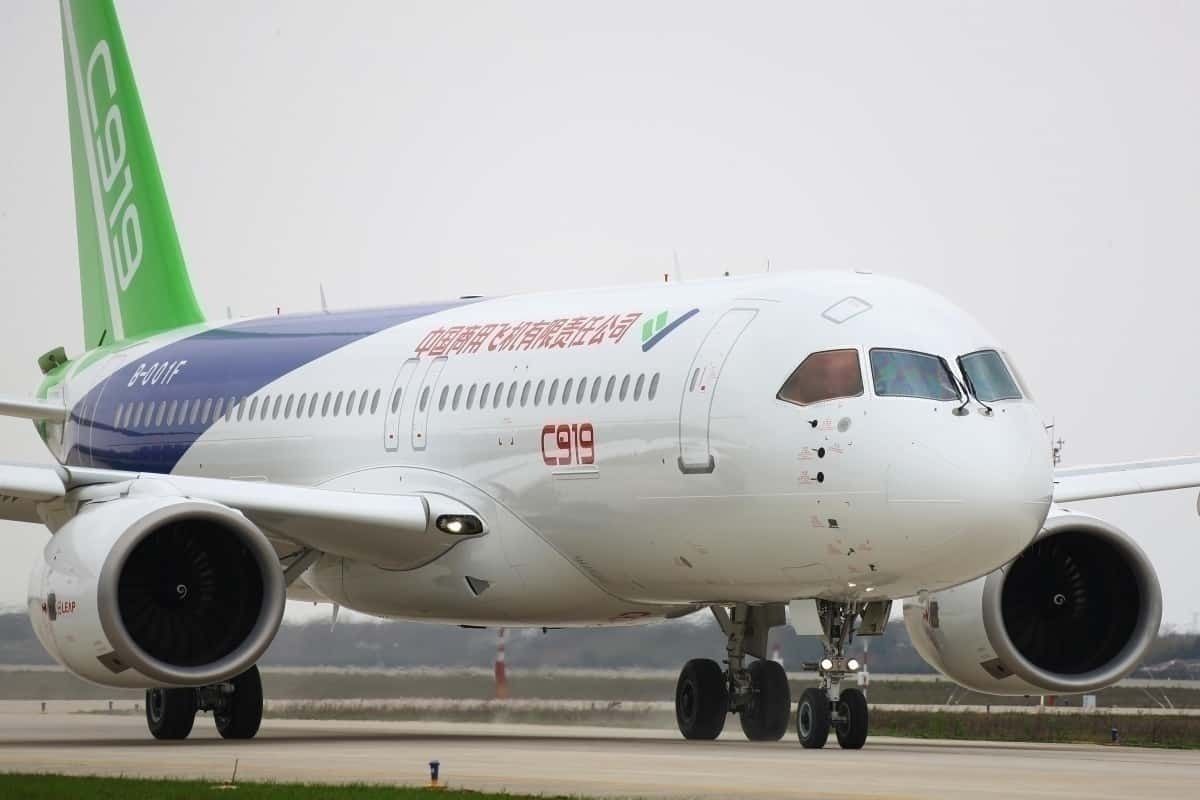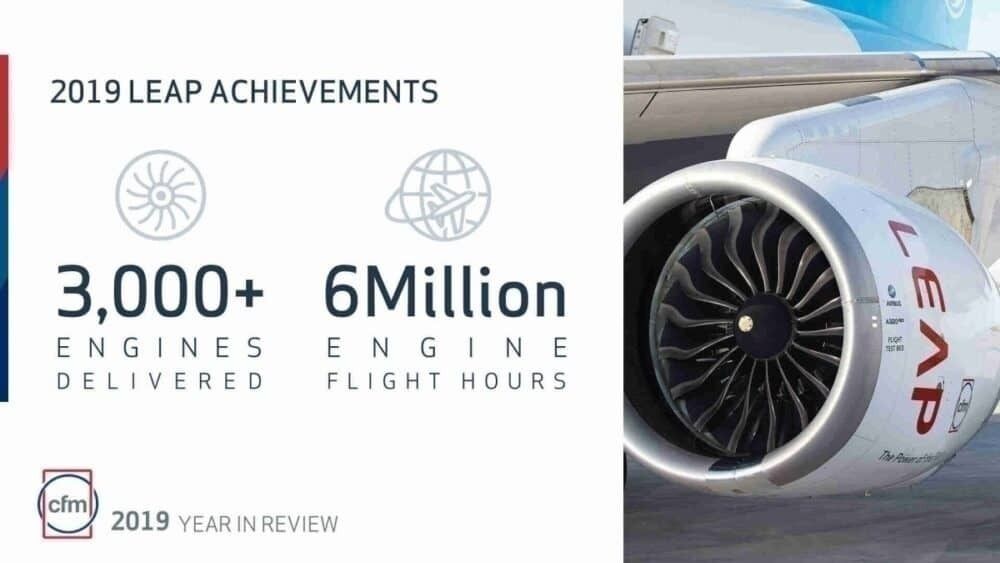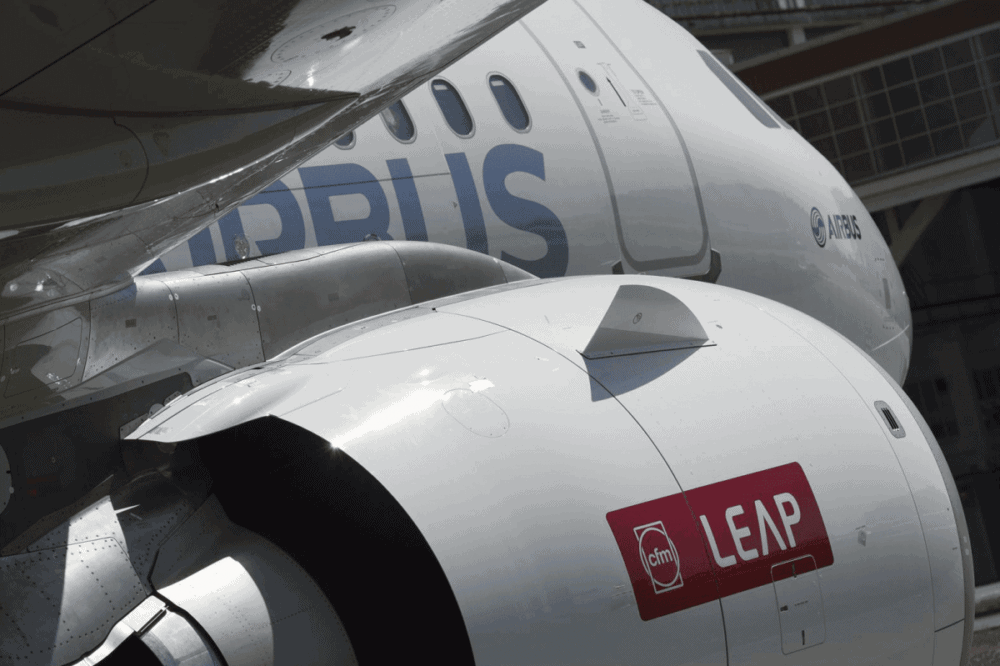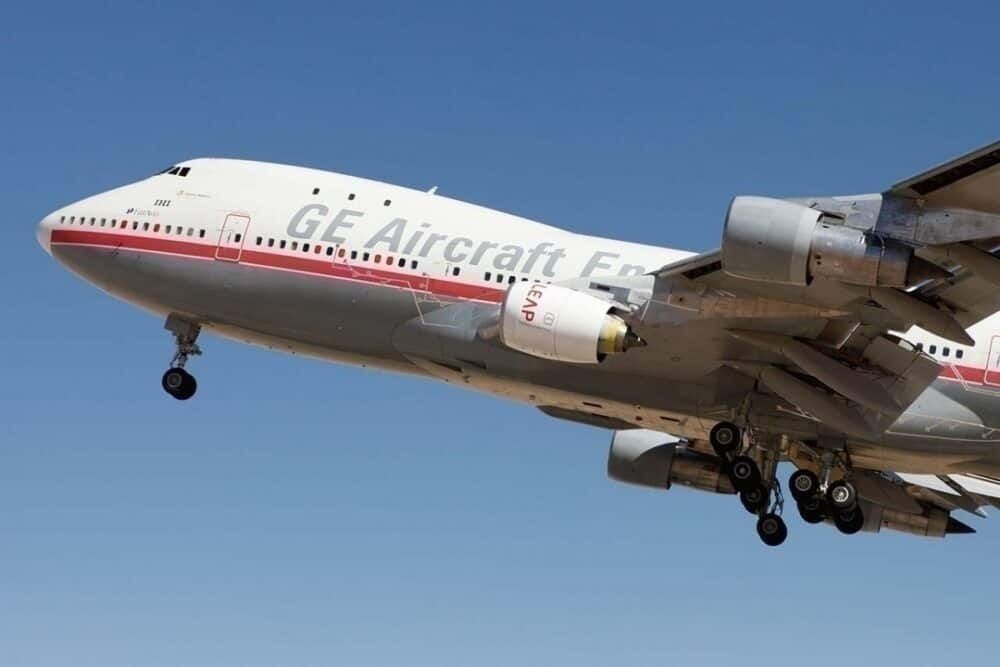US-based engine manufacturer General Electric (GE) has confirmed this week that approval has been granted for it to supply its LEAP-1C engine for the forthcoming COMAC C919. The approval is expected to last for at least four years, and will come as a dose of good news for GE as the firm struggles with the ongoing downturn in demand for new aircraft.
GE reapproved for China
As reported by Reuters, the Trump administration has this week announced approval of licensing for General Electric (GE) to provide engines to China’s forthcoming C919. The C919, in development by COMAC, is pitched to be a narrowbody alternative to the Boeing 737 and Airbus A320 lines.
Earlier in the year, the US was debating the denial of GE’s request to provide engines for the C919. It had requested approval to supply its CFM LEAP-1C engine for the forthcoming aircraft, which is slated to be ready for service in 2021. This was undoubtedly a consequence of the ongoing trade war between the US and China, and GE had been awaiting a final decision from the US Department of Commerce on the issue.
However, in February, Mr. Trump weighed in on the matter, making it clear what he wanted the outcome to be. In a series of tweets, the US President said,
“I want China to buy our jet engines, the best in the World … I want to make it EASY to do business with the United States, not difficult. Everyone in my Administration is being so instructed, with no excuses … THE UNITED STATES IS OPEN FOR BUSINESS!”
Now, after a period of uncertainty, the US government has reapproved GE Aviation to supply engines to the C919. The license to supply the LEAP-1C will last for a period of four years. A spokesperson told Reuters on Tuesday that,
“We received notification that GE Aviation has license approval for engines for the C919.”
Further, FlightGlobal reports the company as saying,
“We are pleased that the [US] administration has come to this decision, and look to continue to serve our customers in China and beyond.”
The inimitable LEAP engine
The CFM line is a joint venture between GE and Safran in France. Its LEAP engine, which stands for Leading Edge Aviation Propulsion, is the successor to the CFM56, and a direct competitor to the Pratt & Whitney GTF option as a powerplant for narrowbody aircraft.
The LEAP-1A variant is an option on the Airbus A320neo line of aircraft, and has surged in popularity following issues with the PW1100G’s introduction. The LEAP-1B, on the other hand, is designed for the Boeing 737 MAX and is the exclusive powerplant for this aircraft type.
COMAC selected the LEAP-1C for the C919 as long ago as 2009, shortly after the engine type was officially launched. However, delays to the aircraft’s development program have meant its introduction with the type has been delayed. Nevertheless, GE has pushed through testing and certification of the engine type, using a Boeing 747 testbed for early flights.
The approval of GE’s license comes at a time when the US is looking to push through new measures to control the export of high technology items to China. It is also targeting companies that use US chipmaking equipment to apply for a license before selling any chips to the Chinese company Huawei.
Although good news for GE overall, it comes at a time when the engine manufacturer is struggling to see any silver linings in the current marketplace. Just last week, the company announced it would furlough 50% of its manufacturing staff, a move affecting around 2,600 workers, with CNBC reporting the company as saying,
“Due to the unprecedented impact of COVID-19 on the commercial aviation industry, GE Aviation is implementing a temporary reduction in commercial engine assembly and some component manufacturing operations for up to four weeks. We appreciate the commitment of all our employees during this difficult time, and we regret having to take this action. We will continue to deliver for our customers and preserve our capability to respond when the industry recovers.”
It's a positive step for GE as the firm struggles to keep its head above water in the current environment.




